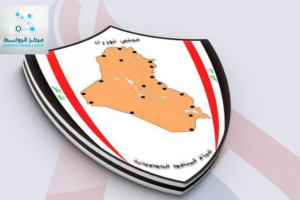BY : Shatha kalel
Iraq has long struggled with rampant corruption, particularly at its border crossings. This issue is exacerbated by a convoluted system of import taxation and currency exchange that allows unscrupulous actors to siphon off vast sums from the public treasury. The current situation not only hinders economic growth but also undermines public trust in government institutions. This article will explore the mechanisms of corruption at Iraq’s borders, analyze the systemic failures that allow these practices to flourish, and propose effective strategies for the Iraqi government to curb this rampant misappropriation of public wealth.
The Current State of Affairs
Border Crossings and Corruption
Iraq’s border crossings are a critical nexus for trade, yet they are plagued by inefficiencies and corruption. Traders often submit falsified invoices to the Central Bank of Iraq, leading to the financing of nonexistent import operations. The country’s foreign currency sales platform, which finances approximately $70 billion worth of import bills annually, has become a gateway for corruption, with an estimated $12 to $14 billion in tax revenues going uncollected. In reality, the state is only able to gather a meager $2 billion in tax revenues each year.
The General Authority of Customs and the Tax Authority have reported paltry revenues—only 471 billion dinars and 585 billion dinars, respectively, in the first few months of this year. If this trend continues, total revenues for both entities may not even reach 15% of what is owed annually, demonstrating a shocking failure in the collection of due taxes and customs duties.
Factors Contributing to Corruption
The intertwining of state institutions, including the Central Bank, border customs, and tax departments, creates a fertile ground for corruption. The existence of unofficial ports and corrupt officials at official crossings allows traders to bypass legal procedures, further eroding state revenues. Even though the implementation of the Skoda system has shown some success in reducing smuggling, the lack of comprehensive oversight and systemic accountability remains a significant barrier.
Proposed Mechanisms for Control
Strengthening the Link Between Institutions
One of the most critical steps the Iraqi government can take is to enhance the connection between the Central Bank, Customs, and Tax Authorities. By establishing a streamlined communication network, these bodies can share real-time data regarding the quality and quantity of goods entering the country. This transparency can drastically reduce the manipulation of invoices and ensure that traders pay the taxes owed.
Implementing a Restricted Account System
The introduction of restricted accounts for taxes and customs can create a more secure framework for revenue collection. Under this system, importers would be required to pay estimated customs and tax amounts upfront. If the goods arrive as intended, the funds would be allocated to the state. However, if the goods do not materialize, the funds could be refunded without complications. This method, already in use in various countries, could potentially increase state revenues from customs to between $5 and $6 billion.
Enhancing Regulatory Frameworks
The Iraqi government must also enforce stringent regulations on customs brokers. These intermediaries often collude to manipulate taxes, creating an environment of distrust and inefficiency. By implementing robust compliance measures and penalties for fraudulent activities, the government can disincentivize corrupt practices and encourage ethical conduct among traders.
Public Awareness and Engagement
Finally, fostering public awareness regarding the implications of border corruption is essential. Engaging civil society and the media in monitoring border operations can promote transparency and accountability. The more citizens are informed, the more pressure can be exerted on authorities to take action against corruption.
Conclusion
The corruption at Iraq’s border crossings represents a significant loss of public wealth and a barrier to economic development. By strengthening institutional links, implementing restricted accounts, enhancing regulatory frameworks, and engaging the public, the Iraqi government can reclaim lost revenue and restore trust in its institutions. Addressing these issues is not merely a financial imperative but a crucial step toward building a more transparent and accountable state. Only through concerted efforts can Iraq hope to turn the tide on corruption and pave the way for a more prosperous future.
Economic Unit/North America Office
Al Rawabet Center for Research and Strategic Studies

